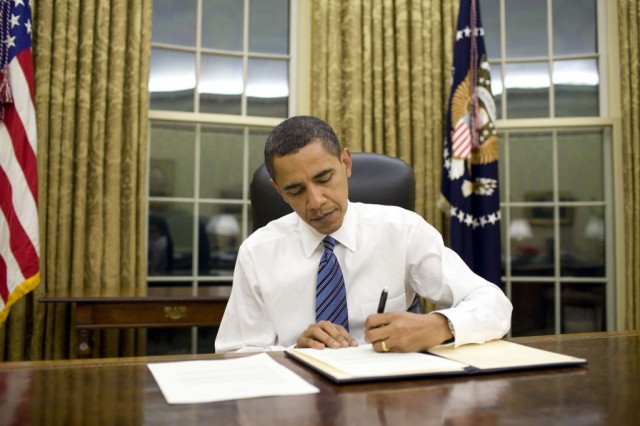
President Barack Obama (whitehouse.gov)
In an interview with CNN Friday, President Obama expanded on his remarks regarding marijuana made in a recent New Yorker interview. In that latter interview, Obama described marijuana as not being any worse than alcohol, and CNN interviewer Jake Tapper pressed him on those comments.
When Tapper asked him about rescheduling marijuana out of Schedule I, the most restrictive classification, he declined to take a position, instead trying to pass the buck to Congress.
“First of all, what is and isn’t a Schedule I narcotics is a job for Congress,” he said.
That comment was misleading. While Congress created the drug schedules and placed drugs in different schedules when it passed the Controlled Substances Act in 1970, the act gives the executive branch the power to reschedule drugs. In fact, the DEA has denied three separate petitions seeking to reschedule marijuana.
“I stand by my belief based on the scientific evidence that marijuana for casual users, individual users, is subject to abuse, just like alcohol is and should be treated as a public health problem and challenge,” he said.
The president added that his main concern was the criminalization of marijuana use.
“My concern is when you end up having very heavy criminal penalties for individual users that have been applied unevenly and, in some cases, with a racial disparity,” he said. “I think that is a problem. We’re going to see what happens in the experiments in Colorado and Washington. The Department of Justice under Eric Holder has said that we are going to continue to enforce federal laws.”
Obama added that the federal government doesn’t have enough manpower to bust people “smoking a joint on the corner.” But it doesn’t need to; more than 90% of all marijuana arrests are made by state and local police, not federal law enforcement.
Instead of concentrating on individual users, Obama said, the federal government was working to prevent undesired consequences, such as out-of-state drug trafficking or violence, from “creeping out of this experiment that is taking place.”
The president also issued a “cautionary note” about the possible consequences of a commercialized marijuana industry and warned legalization proponents to watch out for increased use levels.
“I think they have to ask themselves some tough questions, too,” he said. “Because if we start having a situation where big corporations with lots of resources and distribution and marketing arms are suddenly going out there, peddling marijuana, then the levels of abuse that may take place are going to be higher.”
Article republished from Stop the Drug War under Creative Commons Licensing









